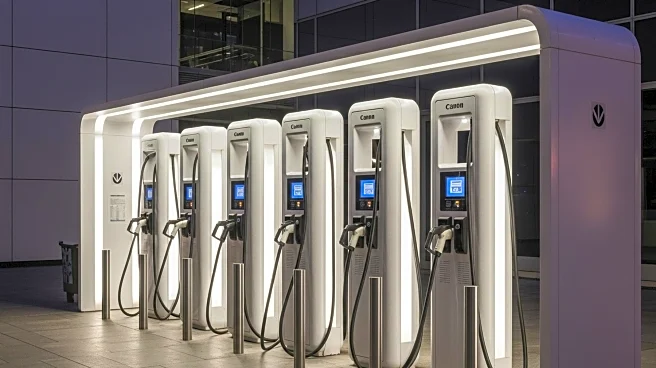What is the story about?
What's Happening?
Policy changes, including the elimination of the federal electric vehicle tax credit scheduled for September 30, are expected to slow EV sales initially. However, improvements in charging infrastructure, supply chain efficiencies, and more EV options are anticipated to support the sector's growth in the long term. Panelists at the Automotive News Congress in Detroit discussed these developments and their implications for the future of EVs.
Why It's Important?
The elimination of the federal EV tax credit could impact consumer incentives and slow the adoption of electric vehicles. However, advancements in charging infrastructure and supply chain efficiencies may mitigate these effects and drive the sector forward. The discussion highlights the importance of balancing policy changes with technological advancements to support sustainable transportation solutions.
What's Next?
Stakeholders in the EV sector will likely focus on enhancing charging infrastructure and supply chain efficiencies to support growth. Policymakers may face pressure to reconsider incentives and regulations to promote EV adoption. The automotive industry will continue to navigate these challenges and opportunities as it transitions to sustainable transportation solutions.
Beyond the Headlines
The policy changes and infrastructure improvements could have long-term implications for the automotive industry's approach to sustainability and innovation. Balancing consumer incentives with technological advancements will be crucial for the sector's success.














